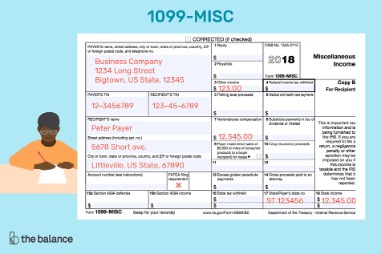Contents:


“Most of the job opportunities are in the private sector, which promotes entry-level accounting staff,” McLaughlin said. These positions can be a great start to your career in management accounting. Education – Management accountants who work directly for schools or school districts are sometimes called school accountants.
Capital budgeting primarily involves analyzing the details necessary to make capital expenditure decisions. For example, in the case of capital budgeting analysis, a company’s management accountants compute the IRR or internal rate of return and the NPV or net present value to help the managers make capital budgeting decisions. Managerial accounting is essential for companies as it enables them to convert hard data regarding finances into information that they can analyze and use to make better decisions.

In contrast, managerial accounting focuses on present data and future estimates. The techniques used in managerial accounting generally make the accounting data sent to the management reliable and accurate. Suppose Matthew, the human resource manager of Panther LLC, wants to see a graph showing employees’ salaries over a specific duration. The organization’s management accountants can fulfill the requirement by providing the details in the specific format the HR department needs. This report breaks down the remaining balances of your clients into specific time periods allows managers to identify the debtors and identify issues in the company collection process. Yes, there are a lot of numbers and equations in managerial accounting but you can actually make it through the course without knowing a single formula.
UNDERSTAND HOW YOUR FIRM MAKES MONEY- Managerial Accounting Career Advice
Founded in 1932, and online since 1995, we’ve helped countless students reach their goals with flexible, career-focused programs. Our 300-acre campus in Manchester, NH is home to over 3,000 students, and we serve over 135,000 students online. Visit our about SNHUpage to learn more about our mission, accreditations, leadership team, national recognitions and awards. Find out what courses you’ll take, skills you’ll learn and how to request information about the program. Management accounting, she said, is a specialized type of accounting — a dialect within the language of business.
Without good managerial accounting, corporate leadership can struggle to make appropriate choices or misunderstand the firm’s true financial picture. Because managerial accounting documents are not official, they do not have to conform to GAAP and can be used internally for a variety of purposes. Because managerial accounting is not for external users, it can be modified to meet the needs of its intended users.
In addition to qualifications, gaining experience in related fields such as financial accounting or business administration can also help transition into management accounting. This will give you a better understanding of the workings of businesses and how to best manage their finances. Second, managerial accounting helps businesses track their progress over time. This information is essential for assessing whether a business is meeting its goals and making necessary adjustments. Without this data, knowing whether a company is on track or needs to make changes would be difficult.
- If studying or working in the accounting field appeals to you, then you probably know about the importance of a good return on investment.
- Cost accounting is a form of managerial accounting that aims to capture a company’s total cost of production by assessing its variable and fixed costs.
- The information recorded adds to the organization’s value with the help of its user-friendly and statistical data and also helps departments make future plans or objectives for the betterment of the firm.
- Combine financial and non-financial data to paint a complete picture of the business and then influence others to use the information to help the organization meet its financial and non-financial goals.
Unlike other branches of accounting, this role is focused on internal data gathering and reporting, meaning professionals do not typically work with or advise external clients. Instead, managerial accountants focus on understanding their company’s cash flows, financial transactions, operating costs and internal rate of return. Once collected and analyzed, this accounting information is translated into reports and presentations that inform budgeting decisions and future investments. Managerial accounting is a type of accounting that is centered around providing financial information and data to managers so that they can make informed decisions about the running of the business. It is separate from financial accounting, which focuses on providing information to shareholders and other external parties.
Meaning of management accounting in English
Accounting for revenues, expenses, assets, liabilities, and net worth, together with the production of summary financial reports. Management accounting played a vital role in the decision-making process in a business organization. The installation of a management accounting system requires high costs on account of an elaborate organization and numerous rules and regulations.
Using both quantitative and qualitative mark to market information, accountants create detailed reports and recommendations that guide investments, capital management strategies and organizational goals. On the contrary, financial accounting observes strict preparatory rules and guidelines by the accounting standards board i.e. Both the standards specify the number of financial statements/reports to be prepared along with comprehensive guidance about the recording and presentation of information. Financial accounting offers almost no flexibility when compared to management accounting.
Management accounting results in reports that are intended for use within a business. Since this information is not viewed by outsiders, it does not have to comply with the reporting requirements of any accounting frameworks, such as generally accepted accounting principles. Instead, the accounting staff can generate reports in any format they want, in order to highlight actionable information. Management accountants bring their accounting toolkit, business acumen, professional objectivity, and commercial perspective to these discussions.
Management Accounting Example
They must manage and control all manufacturing costs, material, labor, and overhead, support performance management, and determine inventory valuation. A management accountant’s primary role is to ensure that the business has robust controls, procedures, and processes in place to monitor performance, minimize risk, and maintain legal compliance with law and regulations. While it is true that these technological advancements have revolutionized many other aspects of business, they are unlikely to make management accounting obsolete.

There is no one-size-fits-all answer to this question, as the best college major for students seeking a career in management accounting will vary depending on each individual’s interests, skills, and goals. Overall, the job priorities of management accountants vary depending on the organization. Overall, managerial accounting is more important than financial accounting for decision-making, tracking progress, and avoiding financial problems. Businesses that do not invest in managerial accounting may find themselves at a disadvantage compared to those that do. A master’s in accounting with a concentration in management accounting prepares you to pursue advanced positions within many kinds of organizations.
For instance, this data can include the past trends of a particular operation, project, or product line of a business. It should include all the costs incurred on that particular project, all the revenue earned from that project and the performance trends of that project i.e. whether it was successful or not. This data is then organized and translated to make it easy to analyze. A companywide balanced scorecard does not look only at the financial measures of the company’s success. It also takes into consideration measures of customer satisfaction and how well the company is meeting strategic goals.
Management Accounting Definition
We use here arithmetical models because they are like the models of management accounting, illustrative and easily understood and applied in practice. Furthermore they are integrated to management accounting, which is a practical advantage. Add managerial accounting to one of your lists below, or create a new one. As briefly mentioned in Reporting above, data integrity is a crucial component of a management accountant’s ability to succeed.
Guide to Management Accounting – businessnewsdaily.com – Business News Daily
Guide to Management Accounting – businessnewsdaily.com.
Posted: Tue, 21 Feb 2023 08:00:00 GMT [source]
Management accounting is specific to strategic decision-making based on company finances. Evaluating – analyzing the product and determining the target market for it. Setting the price of the product according to its competitors in the industry.
Managerial Accounting Meaning, Pillars, and Types
The method uses ratio metrics, such as profitability ratios, efficiency ratios, solvency ratios and liquidity ratios, to “calculate statistical relationships,” according to Investopedia. Add management accounting to one of your lists below, or create a new one. This is not to say that management accounting is a science, it is not. Management accounting is an organization’s internal set of techniques and methods used to maximize shareholder wealth.
Managers use accounting information to make business choices such as investing, financing, and pricing. Our goal is to deliver the most understandable and comprehensive explanations of climate and finance topics. For instance, the Finance manager may wish to see the next quarter budget in the form of graphs.
Forecasting is used to make budget projections based on a comprehensive selection of information, including historical financial and sales data, the economic context and outlook, and customer trends. The information used to create a forecast can include both financial and non-financial data, giving consideration to contextual influences on a business’s financial performance. Standard costing is used to determine a standard or budgeted cost for producing products or delivering a service, which is then compared to the actual costs of operations. Another accounting practice available today is resource consumption accounting .
Provides data
This is more common in Fortune 500 companies who have the resources to fund this type of training medium. The most significant recent direction in managerial accounting is throughput accounting; which recognizes the interdependencies of modern production processes. For any given product, customer or supplier, it is a tool to measure the contribution per unit of constrained resource. RCA emerged as a management accounting approach around 2000 and was subsequently developed at CAM-I, the Consortium for Advanced Manufacturing–International, in a Cost Management Section RCA interest group in December 2001.
Using financial accounting, managers can get insights into a company’s past or current finances, but it’s managerial accounting that allows them to translate this insight into actionable analysis. Management accounting involves analyzing financial data, preparing financial reports, and forecasting future financial performance. Without the insights provided by management accountants, businesses would be flying blind. Management accounting is an applied discipline used in various industries. The specific functions and principles followed can vary based on the industry. Management accounting principles in banking are specialized but do have some common fundamental concepts used whether the industry is manufacturing-based or service-oriented.
- Management accountants can develop a rewarding career in this exciting field with the right skills and training.
- Management accounting, like accounting, as an accounting service to management through its .various functions, has to employ several tools, techniques, and methods.
- Managerial accountants calculate and allocate overhead charges to assess the full expense related to the production of a good.
With a solid foundation in public accounting, Lynn Turner Surum has 20 years of entrepreneurial experience, as well as 10 years experience in management of Not-For-Profit Organizations. Surum earned a Bachelor of Science from Bentley University with High Honors in 1983. Hearst Newspapers participates in various affiliate marketing programs, which means we may get paid commissions on editorially chosen products purchased through our links to retailer sites. Management accounting is one of the most fundamental aspects of business administration. Have the courage to speak up, challenge managers, and hold a mirror up to the business.
Cost Accounting: What It Is And When To Use It – Forbes
Cost Accounting: What It Is And When To Use It.
Posted: Thu, 18 Aug 2022 07:00:00 GMT [source]
One major difference between both management and financial accounting originates from different intended users of the information. The main users of financial reports are shareholders, owners, employees, lenders, government, and other stakeholders. However, for the preparation of budget and tax returns, a management accountant should be hired. Both of these tasks require internal information and an analysis of the past trends for the estimation of future expenses. For the preparation of financial statements, Stephen should hire a financial accountant. Financial statements represent the annual performance of a company and thus only requires the presentation of data.
Also known as the discounted cash flow rate of return, the internal rate of return is used to evaluate a potential investment’s profitability. The IRR is usually compared to the business’s hurdle rate, which is the minimum rate of return the business would accept. The IRR can easily be calculated with a financial calculator or an excel spreadsheet. Managerial accounting focuses on internal users of accounting information. These internal users include executives, product managers, sales managers, and any other company personnel who use accounting information to make decisions.




